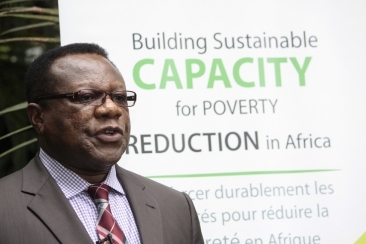
Africa's skill gap is preventing the continent from achieving its optimum economic growth, a pan African think tank said on Thursday.
Visiting Executive Secretary of African Capacity Building Foundation (ACBF) Emmanuel Nnadozie told Xinhua in Nairobi that there is a shortage of human capacity in the areas required to accelerate economic growth.
"There is need to set up mechanisms to ensure tertiary institutions producing enough skilled personnel to meet growing demand," Nnadozie said.
He said that non utilization of available human resources is very common in Africa as a result of poor labor market structures.
"As a result there are a lot of graduates who are not gainfully employed," he said.
According to Nnadozie, political and social instability has contributed to brain drain in the continent.
"Many Africans are working in developed countries yet their home countries have a shortage of skilled personnel," he said. "This is partly because governments have failed to provide adequate opportunities to citizens to contribute to economic development."
Nnadozie added that Africa must develop despite the emerging challenges such as terrorism and disease outbreaks.
"We don't have to wait for optimum situations to develop because the continent can capitalize on the things that are working," he said. "The issues of development also require that nations pay attention to what other successful countries have done.”
The Harare-based ACBF is a nonprofit agency aiming to be the leading African institution in building sustainable capacity for good governance and economic transformation in Africa.
ACBF urged Africa to pursue industrialization in order to reduce dependence on agriculture and export of raw materials.
"We are committed to help governments design, implement development policies that will address challenges in terms of capacity required to reduce poverty," Nnadozie said.
The Pan African body will also commence helping the African Union Commission to assess the capacity needs necessary for the continent to achieve economic transformation.
Nnadozie said ACBF will also carry out a comprehensive needs assessment for some of Africa's regional economic bodies in order to assist them to develop strategies to overcome bottlenecks of integration.
Currently, 39 African states are members of the ACBF. The think tank has disbursed grants worth 500 million U.S. dollars since it was founded in 1991, out of which, Kenya has received 43.4 million dollars.
Source: Xinhua News Agency





